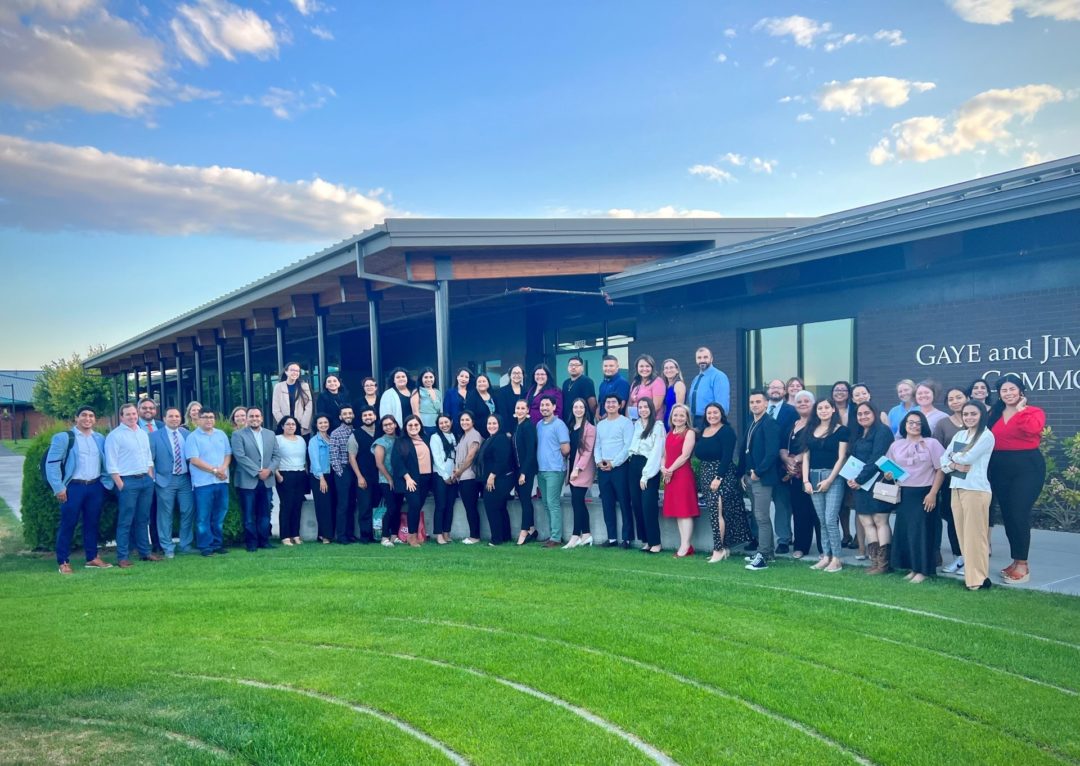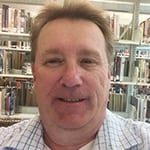
Home » Heritage works to help grow region’s ‘own lawyers’
Heritage works to help grow region’s ‘own lawyers’

Participants, attorneys and judges attending the LSAC PLUS Mentorship Program at Heritage University.
Courtesy Bree Black HorseJanuary 12, 2024
There’s a serious shortage of attorneys in central and eastern Washington, mostly because of low pay and heavy caseloads.
Attorneys are leaving the profession, retiring or are moving to bigger cities such as Seattle or Portland.
What’s left in the eastern part of Washington state is what César Torres calls a legal desert.

Washington counties most affected by a shortage of lawyers are Franklin and Adams counties, followed by Ferry and Douglas counties.
| Courtesy César TorresTorres is the director of the Northwest Justice Project (NJP). It’s Washington state’s publicly funded — and largest — civil legal aid program serving low-income communities across the state.
For many years, NJP — which has offices in the Tri-Cities, Yakima, Wenatchee, Omak and Quincy — and other legal-aid services have faced challenges hiring bilingual, bicultural attorneys of color to serve central Washington communities.
“The statistics concerning non-white attorneys across the country are abysmal and getting worse,” Torres said.
So it was Torres who decided in 2020 to propose to his fellow legal aid directors around the state that maybe they should all find a way to establish a law school in central Washington.
"The program is useful for those students who might never have thought law school and becoming a lawyer was possible for them. " — Bree Black Horse, program director
That goal is still a way off. But everyone also understood that more attorneys — especially diverse attorneys — were needed in the region.
“It would be ideal to hire attorneys who are from the area, who know the area, who are bilingual, who have roots there and who are culturally competent to work directly with the large Latino and Native American communities — which would mean we would have to grow our own lawyers,” Torres said.
Torres connected with the law school deans at the state’s three law schools — Gonzaga University, Seattle University and the University of Washington — and they were all supportive. They started to meet in early 2021, and the Law School Admissions Council (LSAC) created a Prelaw Undergraduate Scholars (PLUS) program, which tries to attract diverse students toward the law.
Heritage University in Toppenish, which also has a campus in the Tri-Cities, seemed like the likely place for the program to begin, and the first cohort was in 2022.
How it works
The program started in 2022 with 36 students. In 2023, 29 students enrolled.
This year’s registration gets underway around March, said Kimberly Bellamy-Thompson, the head of Heritage’s social science department.
“Students from our Tri-Cities campus have participated in it, and they are provided the same opportunities as Toppenish students,” said Bellamy-Thompson. “Criminal justice is offered at HU in the Tri-Cities.”
Classes are usually three weeks in June, in-person three days a week.
Some of the offerings last year included a mock first-year law student class and mock clinic class; sessions dedicated to explaining the law school admissions process, led by admissions staff of each of the state’s three law schools; seminars preparing students for the Law School Admissions Test (LSAT), as well as drafting personal statements and resumes; a visit to Yakima County Superior Court to observe a mock trial exercise and meet with judges; and individualized law school admissions counseling sessions provided by the three law schools' admission departments.
Bree Black Horse, an attorney who lives in Yakima, was the program director this past year.
“The students involved are rising sophomores (those who have finished their freshman year) to recent graduates,” Black Horse said. “Students range from their early 20s to early 40s. The program is useful for those students who might never have thought law school and becoming a lawyer was possible for them. Most participants live here in the Yakima Valley area. But some commute from Seattle or Spokane.”
Each LSAC PLUS scholar is also paired with a mentor attorney for the duration of the program.
“We’ve had more people who have wanted to be mentors and speakers,” Black Horse said.

Participants pose with Washington Supreme Court Chief Justice Steven Gonzalez and Justice Mary Yu, and Seattle University School of Law Dean Anthony Varona, among others.
|Courtesy Bree Black Horse
That mentor and speaker list is an all-star legal lineup for the state of Washington.
Last year’s speakers included:
· Stephen C. Gonzalez, chief justice, Washington State Supreme Court.
· Mary Yu, justice, Washington State Supreme Court.
· Judge Sonia Rodriguez-True, Yakima County Superior Court.
· Torres, NJP executive director.
· Lola Velazquez, attorney for NJP.
· Derek Red Arrow Frank (Nez Perce), associate, Stokes Lawrence PLLC.
· Marta Sandoval, general counsel, Continental Mills Inc.
· Anthony E. Varona, dean, Seattle University School of Law.
· Tamara Lawson, dean, University of Washington School of Law.
At the end of the program, students will have a better understanding about what it takes to apply and be accepted into law school.
While the data for two years of the program is small, Black Horse likes what she’s seeing.
“Two participants applied to law school at Seattle U and are in the JD Flex program from the first year,” she said. “This year’s class (2023), I anticipate 10 students to submit to apply to school. I also know of a few from last year who’ve told me they intend to apply.”
The LSAC PLUS program is a bridge to possibly going to law school.
Bellamy-Thompson liked that, then adds, “Or it’s, ‘I never thought law school could be on my plate.’ Now, ‘I’m interested and this is what I want to do.’”
But the program will need help in the near future.
The LSAC has funded the program with grants of $100,000 for the past two years, and it will do so again this year.
But after that, it’ll need help.
“Community funding for longevity is necessary,” Bellamy-Thompson said. “This is the last year LSAC will fund.”
Black Horse said she remembers the first time she walked into Yakima Superior Court.
“I looked around and realized I was the only attorney of diversity,” she said. “(This program is) amazing. I wish I had this when I was looking to get into law school. The idea is to encourage participants to get their legal education but then come back.”
Bellamy-Thompson has also found inspiration in the program.
“It’s awesome,” she said. “It’s hard to describe the energy. I get students coming up to me and say, ‘Me? I could go to law school?’ The attorney shortage in central Washington, it’s a problem. There are a lot of under-represented people in the Valley. This program will help that.
“But it’s going to take a while.”
Applications for the LSAC PLUS program for 2024 should be available in the spring. Go to: heritage.edu.
Latest News Education & Training Legal
KEYWORDS January 2024
Related Articles





